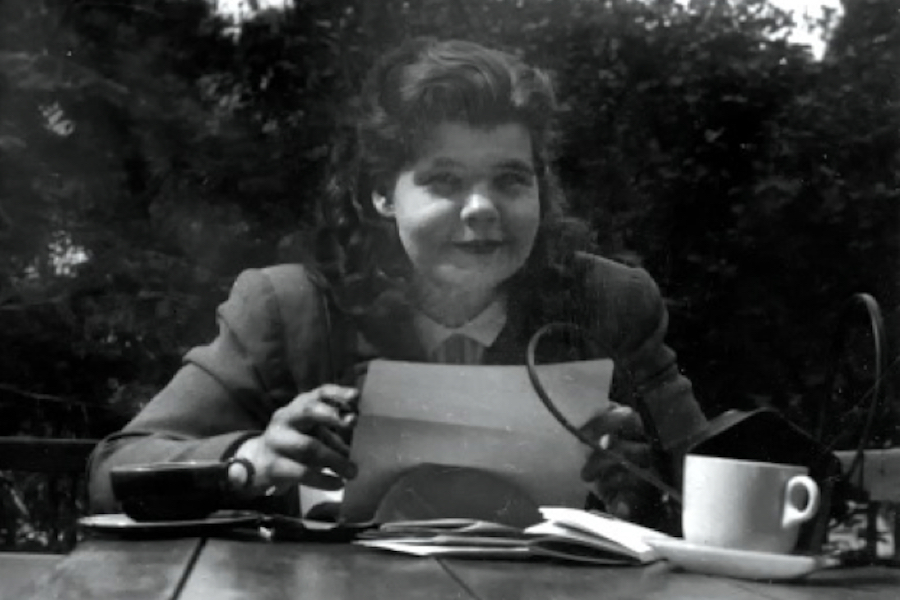
The Facts of Science Fiction
 By Joseph Peters
By Joseph Peters
As a writer and reader of science fiction, I was excited to interview three literary agents of the Virginia Kidd Agency, one of the most renowned and long lasting agencies of the genre.
Christine Cohen is in charge of short fiction, novel length, foreign/translation rights, film/TV rights and office management; William Reeve handles short stories and novel length fiction; and Vaughne Hansen, a senior agent, handles short fiction, novel length, ebooks, audio rights and film.
The agency was founded by Virginia Kidd in 1965 in Milford, Pennsylvania. Kidd, unfortunately, passed away in 2003, but will forever be known as a legend in the science fiction community. Her agency has worked with authors such as James Blish (the Cities in Flight series), Alan Dean Foster (ghostwriter of the original novelization of Star Wars), Anne McCaffrey (the Dragonriders of Pern series), Judith Merril (Shadow on the Hearth and The Tomorrow People), and Gene Wolfe (The Book of the New Sun), to name only a few, according to Hansen.
Coal Cracker: What is it like working for such a prestigious science fiction literacy agency?

Christine Cohen
Christine Cohen: I was blessed to know Virginia since I was about 14. It wasn’t until I took my very first phone call (from the award-winning writer Harlan Ellison, who is legendary for being, shall we say, a bit of a “curmudgeon”) that it sank in––these are famous authors.
I remain amazed by what Virginia accomplished. And now, 18 years later, I feel proud that my work is a part of this place’s legacy.
There will always be a part of my brain that shouts, “I am talking to Alan Dean Foster on this phone right now!” It’s exhilarating to be that impressed with and inspired by the people you work with. I love that the job allows us to forge friendships with these wonderful people.
There is an orchid flowering in my office that was the last Christmas gift Anne McCaffrey sent us. She was a truly lovely woman. I have a doodle, penned by (The Left Hand of Darkness and The Eye of the Heron author) Ursula K. Le Guin, of her cat Zorro. I have a Star Wars novelization “shrine” in my office that includes the works penned by Alan Dean Foster, including The Force Awakens.
Speaking of Star Wars, I get to work with the family of E.E. “Doc” Smith, whose Lensman works (penned in the 1920s and 30s) were named as an inspiration to George Lucas.
There are times when I step back and find myself amazed by the sheer amount of history and talent that surrounds us.
CC: Science Fiction has been around for quite some time and continues to be popular. What’s your opinion on the state of the genre?
Vaughne Hansen: Science fiction and fantasy are continuously evolving. They have their ups and downs, changes in themes, but always come back.
Cohen: Science Fiction will continue to evolve as we make leaps and bounds in technology. Sometimes the gadgets come first, and sometimes the fiction does. Murray Leinster’s short story “A Logic Named Joe” imagined the Internet. That piece was written in 1946! That’s pretty incredible.
There are some great minds in science fiction, chief among them Gene Wolfe, whose works have so many layers, it’s like peeling an onion. And we have newer writers capable of evoking this wonder, too. Michael Libling comes to mind. An author we recently signed, Chris Hayes, also comes to mind. If I have to take a break and decompress after I’ve finished reading a work, it’s a sure sign that the story has impressed me. This happens more and more, which tells me that brilliant writers will continue to make their way into the field.
Also, the genre is comprised of a close-knit bunch of professionals and writers who are first and foremost fans. Collectors, too. And so while people may be introduced to science fiction writers via ebooks, if they love a work and an author enough, they will want the actual, physical book on their shelf. It’s a treasured possession. Science Fiction has always had its finger on the pulse of the future¾the original writers called themselves Futurians, after all.

Will Reeve
Will Reeve: Science fiction is doing great. It’s killing it in the movies: Star Wars, The Martian, Gravity, etc. Book sales are doing just as well. Rights from works first published 50 or so years ago are still in print, being sold in foreign and domestic markets, not to mention all the new material that is smashing records.
CC: Virginia Kidd was the first female literacy agent in speculative fiction. Tell us about the legend that she established for science fiction, and what it’s like to continue the agency’s work since her passing?
Cohen: My favorite thing about Virginia was her generosity. She was one of the most genuinely kind people I have ever known. That kindness extended to people, animals and the planet. Long before it was fashionable, she was very active in supporting charities for global conservation. That always impressed me. Here was a woman who not only worked in the future, but also cared about it.
I love the fact that she pretty much started agenting for her friends for free. She had a natural genius for contracts, and what was fair for authors. The Futurians would gather at her house, called Arrowhead, or at (“To Serve Man” author) Damon Knight’s rented, rambling old Victorian, called The Anchorage. In addition to running informal writers’ workshops, folks would also bring their contracts.
Virginia had a knack for determining if they were fair or if the writer should hold out on some of the terms. Finally, her friends convinced her to make it official, and get a commission for all of her work.
When Virginia passed away, it was a time of sadness and even shock. Even though she was in her 80s, she was such a force of nature that we expected her to live to 100. But her son and daughter made it known right away that they wanted their mother’s legacy to continue.
We still work out of the old house. The physical location is such a part of science fiction history; truly some of the origins of the genre were shaped here.
Hansen: Virginia was the boss but she allowed you to argue with her. If your argument was valid and well put, she would even change her mind and say, “Yes, you are right.” How many people in this world have that kind of confidence?
CC: Science fiction novels are often adapted for television or movies. Do you think the genre holds up better through film or writing?
Hansen: Think of writing and film as two different ways of looking at the same subject. Adaptations are improving. There is still a long way to go but you find more instances where the filmmakers WANT to make an accurate representation of the book(s). Think of how many tries it took to get Lord of the Rings right!
Cohen: I am an avid cinephile. I think movies can be a work of art¾Christopher Nolan’s Interstellar springs to mind. And television, when done right, too.
It’s always a thrill to see novels make it to the big screen. Adaptations run the gamut from faithful interpretation (Andy Weir’s The Martian) to artistic rendering (Stanley Kubrick’s The Shining.)
Some of the best film adaptations are those that work closely with the author to achieve their vision, but the collaboration can sometimes even enhance the work and rein it in for an even better story (Curtis Hanson’s adaptation of James Ellroy’s LA Confidential for a non-genre example.) So it’s impossible to say that one represents the genre better than the other. And then there is the case of giving older works a new life. I would be remiss if I didn’t mention George R. R. Martin’s Game Of Thrones.
All of that being said, I think it’s a bona fide fact that you’ll always *experience* a story a bit more through written words, if only because you are submerged in that world more completely and for a longer period of time.
I read the novelization of Star Wars: The Force Awakens by our author Alan Dean Foster. [A novelization means the screenplay came first and then the novel.] Now, I have seen that film five times in various formats (2D, 3D, IMAX) and love it. Yet, I was thrilled to see the little details and explanations in the text of that novelization that weren’t included in the feature film due to time constraints.
In short, I believe film and novels are two mediums for telling the same tale, and are both enjoyable experiences.
However, I don’t think that enough books are getting film or TV adaptations. Hollywood seems stuck in some trend in which we are being force-fed recycled, formulaic plots (buddy comedies with one or two good laughs) and the dreaded remake.
I can only hope that a new wave of screenwriters, producers and directors will start adapting works and showing the public some terrific new material. Science fiction films have had a large fan base since the 1950s; it’s a loyal fan base and we’re buying tickets.
Want to write Science Fiction?
“Follow the basics,” says senior literary agent Vaughne Hansen.
- Write and keep on writing
- Understand grammar, spelling and punctuation
- Proofread, and proofread again
- Learn to take constructive criticism
- Read the types of works that you write
- Research how to prepare and submit a manuscript
- Join a writing workshop or organization such as Science Fiction and Fantasy Writers of America, Horror Writers of America, Romance Writers of America, Mystery Writers of America
“An agent is your ‘foot in the door’ of a publishing house,” adds Christine Cohen of the Virginia Kidd Agency. “You’ll need the patience and temperament to work with your agent to achieve a perfect manuscript.”

